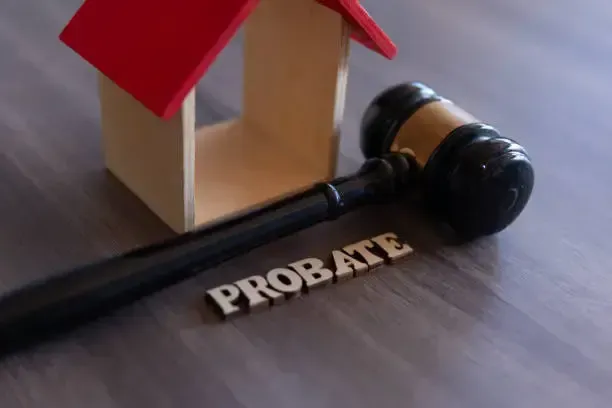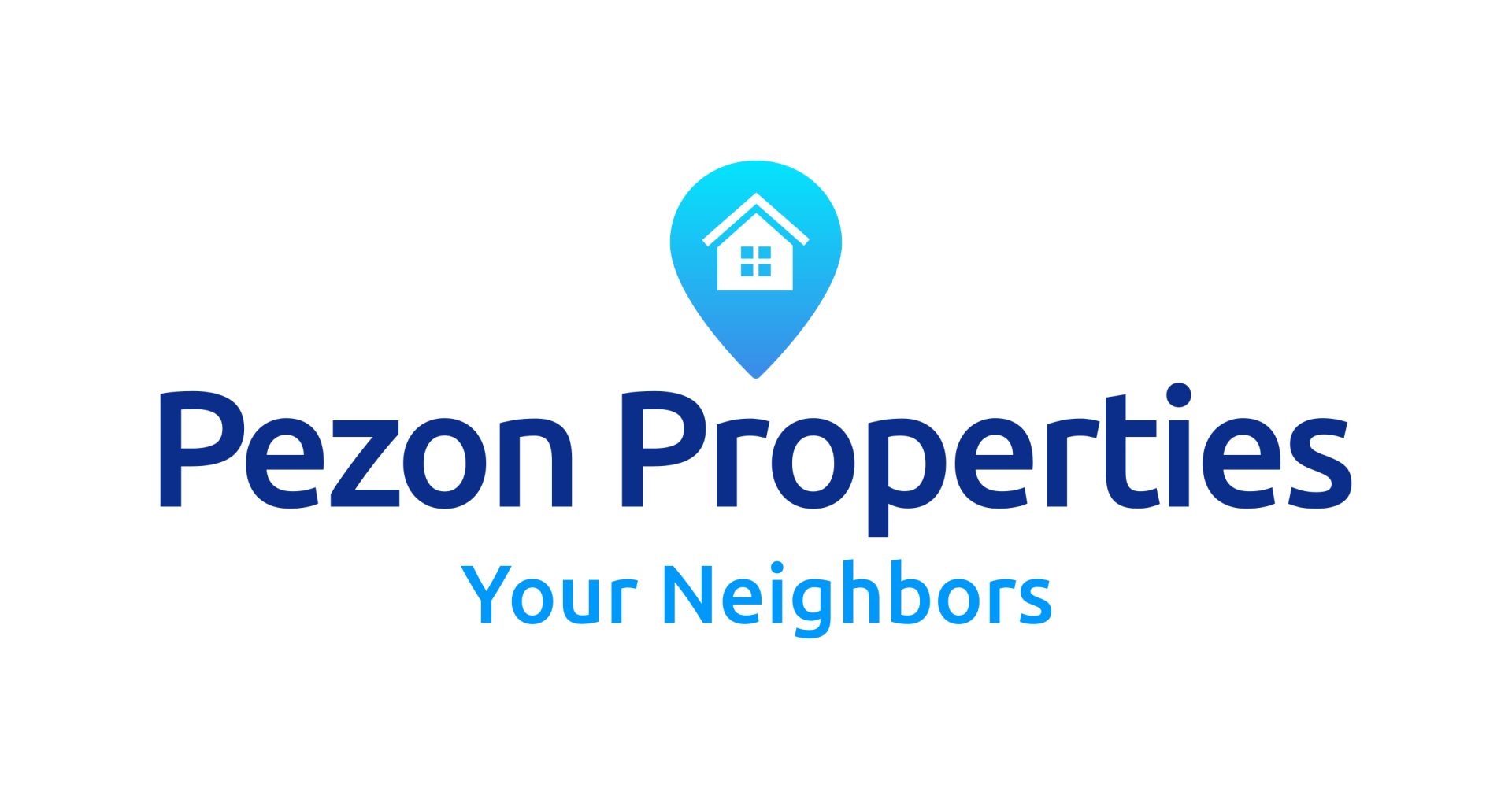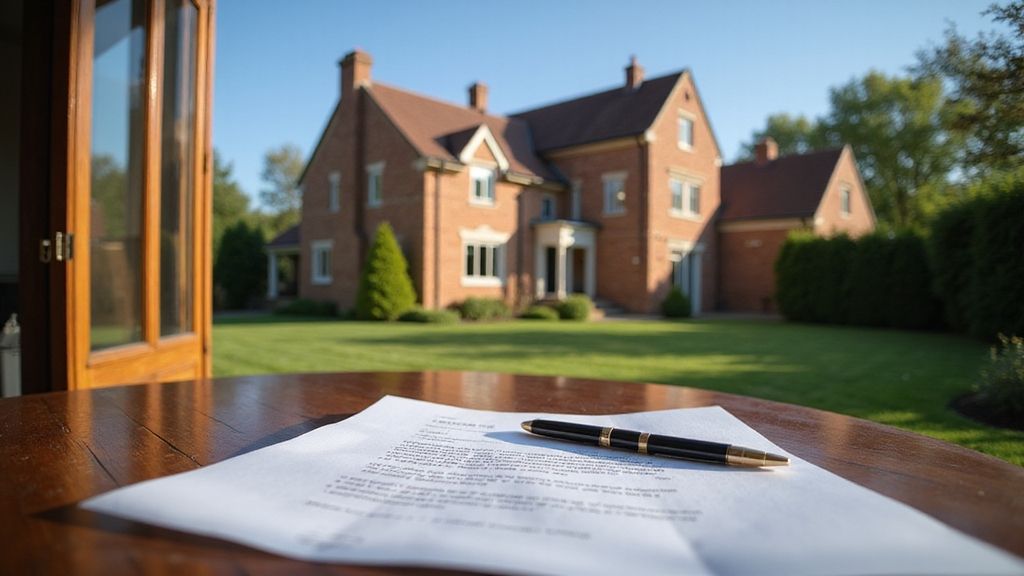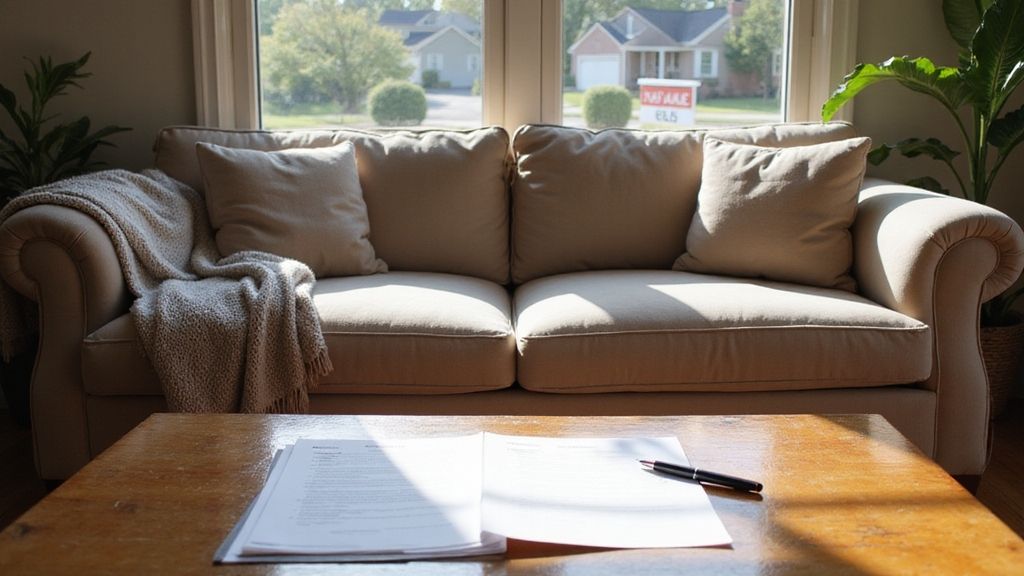Can I Sell my Deceased Parents House Without Probate?

The loss of a parent is a challenging time. It often comes with unexpected responsibilities. Selling a deceased parent's house is one such task. Many wonder if they can bypass the probate process. The answer is yes, but it's not always straightforward.
Dealing with a deceased parent's property can be complex. The probate process is often time-consuming and costly. Fortunately, alternatives exist for those seeking to sell quickly. These methods can help avoid lengthy legal procedures.
Our discussion will investigate various strategies. We'll examine ways to transfer ownership without court involvement. Legal tools like living trusts and joint ownership will be explained. Understanding these options can simplify the sale process.
Navigating real estate transactions after a parent's death is intimidating. In this blog I will explore the options for selling without probate.
What Is Probate?
Probate is the legal process that occurs after someone passes away. This process involves validating the deceased person's will and distributing their estate assets. Probate law governs the entire procedure, guaranteeing fair distribution of property and assets.
The purpose of probate is to settle the deceased's financial affairs. It protects the interests of beneficiaries and creditors.
Probate proceedings typically involve several steps:
1. Filing a petition with the probate court
2. Notifying heirs and creditors
3. Inventorying the estate's assets
4. Paying debts and taxes
5. Distributing remaining assets to beneficiaries
Selling a house during probate can be challenging. The executor must obtain court approval before listing the property. This requirement can delay the sale process considerably. Potential buyers may be hesitant to purchase a probate property due to legal complexities.
The impact of probate on selling a house includes:
1. Longer sale timelines
2. Additional paperwork and court appearances
3. Possible price reductions to attract buyers
4. Limited control over the sale process
Probate proceedings can take months or even years to complete. This delay can affect the property's value and marketability. Executors must carefully navigate probate law to guarantee a smooth sale process. Understanding probate implications is essential for anyone inheriting or selling a deceased person's property.
How to Avoid Probate
Several situations may allow you to bypass probate requirements when dealing with a deceased parent's house. Joint tenancy with rights of survivorship is a common method. This arrangement automatically transfers property ownership to the surviving owner upon death. Transfer-on-death deeds offer another option. These legal documents allow property to pass directly to named beneficiaries without probate.
Small estate exemptions can also help avoid probate. Many states have simplified procedures for estates below certain value thresholds. These exemptions vary by state but typically range from $20,000 to $100,000. Executors can often use affidavits or simplified court processes to transfer assets quickly.
Living trusts provide another way to bypass probate. Parents can transfer property ownership to a trust during their lifetime. The trust then distributes assets to beneficiaries after death, avoiding probate entirely.
Payable-on-death accounts and beneficiary designations on retirement accounts and life insurance policies also avoid probate. These assets pass directly to named beneficiaries upon the account holder's death.
Understanding these probate alternatives can help streamline the property transfer process. Consulting with a local estate attorney is advisable to determine the best approach for your specific situation.
Legal Alternatives to Probate
Probate can be a lengthy and costly process. Fortunately, several legal methods exist to bypass probate, making it possible to sell the house without going through probate. A living trust is a popular option for avoiding probate. This legal arrangement allows you to transfer property ownership to a trust. You maintain control of the assets during your lifetime. Upon your death, the trust transfers ownership to your beneficiaries without going through the probate process.
Beneficiary deeds offer another way to avoid probate for real estate, allowing for a smoother transfer upon their death. These deeds allow property owners to name beneficiaries who will inherit the property upon the owner's death. The property transfer occurs automatically, without the need for probate.

Transfer on death deeds (TODDs) function similarly to beneficiary deeds. TODDs allow property owners to designate beneficiaries who will receive the property after the owner's death. This method avoids probate and provides flexibility, as the owner can change or revoke the TODD at any time.
Joint ownership with right of survivorship is another probate-avoidance strategy. When one owner dies, the property automatically transfers to the surviving owner(s) without probate. Payable-on-death accounts for bank and investment accounts work similarly. These accounts transfer directly to named beneficiaries upon the account holder's death, bypassing probate entirely.
How to Sell a House During Probate
Probate sales can be complex and time-consuming. The process involves several steps and requires court approval. Estate executors or personal representatives must navigate this carefully.

The first step is obtaining court permission to sell the property. This involves filing a petition with the probate court. The executor must provide details about the property and the proposed sale.
Court approval is vital for probate sales. The judge reviews the petition and decides whether to grant permission. This process can take several weeks or even months.
Once approved, the executor can list the property for sale. They must follow specific guidelines set by the court. These may include obtaining a professional appraisal and advertising the sale.
Potential buyers should be aware that probate sales have unique challenges, which may complicate their ability to sell the house. The sale process may take longer than usual. Buyers must also be prepared for potential delays due to court schedules.
Executors must carefully document all offers received on the property. They are required to present these offers to the court for review. The court may accept the highest offer or request an overbidding process.
Closing a probate sale requires additional steps. The executor must obtain final court approval before completing the transaction. This guarantees all legal requirements are met.
Challenges in probate sales can include disagreements among heirs or creditors. These issues may delay the process or complicate the sale. Executors must navigate these challenges carefully to guarantee a smooth transaction.
Understanding the probate sales process is essential for all parties involved. It helps manage expectations and guarantees compliance with legal requirements.
For those looking to sell houses in Easton, PA, Pezon Properties offers a solution. We buy houses for cash, simplifying the process for sellers. We buy houses in Easton, Bethlehem, and other neighborhood areas of PA, providing a quick and hassle-free option for those dealing with probate sales or other complex real estate situations.
How to Prepare the Property for Sale
Declutter and Clean
Decluttering is vital when preparing a deceased parent's house for sale. This process involves removing personal items and excess furniture. Buyers prefer spaces that appear spacious and neutral. A clean home creates a positive impression on potential buyers. Deep cleaning includes scrubbing floors, washing windows, and dusting all surfaces. Professional cleaning services can guarantee a thorough job.
Staging the Home
Staging showcases the property's best features and helps buyers envision themselves living there. This process involves arranging furniture to maximize space and flow. Neutral colors and minimal decor create a blank canvas for buyers' imaginations. Proper lighting enhances the ambiance and makes rooms appear larger. Staging professionals can provide expert advice on presentation.
Maximize Curb Appeal
First impressions are vital in real estate. Curb appeal refers to the property's exterior appearance. A well-maintained lawn, trimmed hedges, and fresh paint can boost curb appeal. Power washing the driveway and walkways removes dirt and stains. Adding potted plants or flowers near the entrance creates a welcoming atmosphere. Repairing any visible exterior damage is necessary for a positive impression.
Minor Repairs and Updates
Small repairs can greatly impact a property's perceived value. Fixing leaky faucets, patching holes, and replacing worn carpets are worthwhile investments. Updating outdated light fixtures and hardware can modernize the space. Fresh paint in neutral colors can brighten rooms and cover imperfections. These improvements can increase the property's appeal and potentially its selling price.
Marketing and Selling Strategies
Effective marketing is essential when selling an inherited property without probate. Online platforms offer powerful tools for reaching potential buyers. Real estate websites and social media platforms can showcase the property's best features. Targeted online advertising campaigns help attract interested parties quickly.
Staging the home is important for creating a welcoming atmosphere. Decluttering and cleaning make the space more appealing to potential buyers. Maximizing curb appeal draws attention and increases interest in the property. Highlighting key features helps buyers envision themselves living in the home.
Engaging with potential buyers is critical throughout the selling process. Open houses and virtual tours allow interested parties to explore the property. Prompt responses to inquiries demonstrate professionalism and commitment to selling.
Setting the right price is essential for a successful sale. Competitive pricing attracts more buyers and can lead to quicker offers. Research comparable properties in the area to determine a fair market value. Consulting with a real estate professional can provide valuable insights into pricing strategies.
Tax Implications of Selling a Deceased Parent's House
Selling an inherited property can have notable tax consequences. Heirs should understand these implications before making any decisions. The primary tax considerations include capital gains tax and the step-up in basis.
Capital Gains Tax
Capital gains tax applies to the profit made from selling an inherited property. The taxable amount depends on the difference between the sale price and the property's basis, which is important when deciding to sell the house. Fortunately, inherited properties benefit from a step-up in basis.
Step-Up in Basis
The step-up in basis is an essential concept for inherited properties. It refers to the property's fair market value at the date of death. This value becomes the new basis for calculating capital gains tax. The step-up in basis often reduces the taxable amount considerably.
Date of Death Value
Determining the date of death value is vital for accurate tax calculations. Professional appraisals or comparative market analyses can help establish this value. Heirs should keep thorough records of the property's condition and value at the time of inheritance.
Inheritance Tax
Some states impose an inheritance tax on beneficiaries who receive property from a deceased person. This tax is separate from capital gains tax and varies by state. Heirs should consult with a tax professional to understand their specific obligations.
Tax Exemptions and Deductions
Certain exemptions and deductions may apply when selling an inherited property. These can include exclusions for primary residences or deductions for property improvements. Understanding these options can help minimize the tax burden.
Professional Guidance
Tax laws surrounding inherited properties can be complex. Seeking advice from a qualified tax professional or real estate attorney is highly recommended. They can provide personalized guidance based on individual circumstances and local regulations.
How to Handle the Disputes and Inheritance Issues
Inheritance disagreements can complicate the process of selling a deceased parent's house. Heirs may have conflicting opinions about the property's fate. Some might want to keep it, while others prefer selling. Personal property disputes often arise over sentimental items or valuable possessions. These conflicts can delay the sale and create tension among family members.
Effective communication is essential to resolve inheritance-related conflicts. Family meetings can provide a platform for open discussions. Each heir should have the opportunity to express their concerns and preferences. Compromise is often necessary to reach a mutually agreeable solution.
Professional mediators can help navigate complex family dynamics. They offer an unbiased perspective and facilitate productive conversations. Mediators can assist in finding creative solutions that satisfy all parties involved. Their expertise can prevent prolonged legal battles and preserve family relationships.
Legal advice may be necessary if disputes persist. An attorney specializing in estate law can clarify inheritance rights. They can also provide guidance on the proper distribution of assets. In some cases, the court may need to intervene to resolve conflicts.
Proper estate planning can prevent many inheritance disputes. Clear instructions in a will or trust can minimize confusion. Parents should communicate their wishes to their children while still alive. This proactive approach can help avoid future conflicts and promote a smoother inheritance process.
Role of Legal and Real Estate Professionals
Legal and real estate professionals play a vital role in selling a house without probate. Estate attorneys provide expert guidance on legal ownership and estate planning matters. These professionals guarantee compliance with local jurisdiction laws and regulations.
Probate lawyers assist in maneuvering complex probate matters and resolving potential debts or liens. Their expertise helps protect the interests of heirs or beneficiaries involved in the sale.
Real estate agents bring valuable knowledge of the local market. They help determine the fair market value of the property and handle marketing efforts. Agents also manage negotiations with potential buyers and coordinate property showings. Their involvement streamlines the selling process and maximizes the property's value.
Estate attorneys and probate lawyers can help avoid costly legal issues. They verify all necessary documentation is properly prepared and filed. Real estate agents provide market insights and handle the practical aspects of selling. This combination of legal and real estate expertise helps guarantee a smooth transaction. It also minimizes potential disputes among heirs or beneficiaries.
Professionals can also assist with the disposition of personal property. They provide guidance on handling items left in the house by the deceased. Their involvement helps address any potential legal or emotional challenges. This all-encompassing approach guarantees a thorough and efficient sales process.
Conclusion
Legal advice is important when dealing with inherited property. A probate lawyer can guide you through the complexities of estate laws. They can help determine the best course of action for your unique circumstances.
Proper documentation is essential for any property sale after a parent's death. This includes the death certificate and any relevant estate planning documents. These documents prove your authority to sell the property.
If you're looking to sell a deceased parent's house quickly and without hassle, consider Pezon Properties. We buy houses for cash and as-is, regardless of condition or any challenges you may face. Our streamlined process can help you avoid the complexities of traditional property sales, offering a simple solution during this difficult time.
Give us a call anytime at 484-484-0971 or fill out this quick form to get started today!
Get A Fair Cash Offer On Your House

About the author
Mathew Pezon
Mathew Pezon is the founder and CEO of Pezon Properties, a cash home buying company located in Lehigh Valley, Pennsylvania. With several years of experience in the real estate industry, Mathew has become a specialist in helping homeowners sell their properties quickly and efficiently. He takes pride in providing a hassle-free, transparent, and fair home buying experience to his clients. Mathew is also an active member of his local community and is passionate about giving back. Through his company, he has contributed to various charities and causes.















